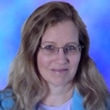The explosion of false information online in numerous fields﹘health, nutrition, medical, fitness and political﹘makes it critical for viewers to quickly evaluate a website in a few seconds for reliability. The rise of social media influencers are blurring the lines in many areas, including nutrition and medicine, where peers are viewed as credible as experts. A quick screening checklist can assist the viewer critically analyze information and determine if it is true or false news, to follow nutrition or medical advice, to make an online purchase, or to use it as a fact-based resource in a class assignment.
The presenter incorporates critical thinking and Internet sleuthing skills into assignments that teach online nutrition students how to become savvier Internet healthcare consumers. Over several different assignments college, nutrition students practice evaluating online articles and finding reliable, evidence-based information using QUICK reviews and checklists.
During this general session participants will learn about a QUICK review that can be rapidly used to check websites for reliability and two checklists that can be applied to more thoroughly evaluate online websites and resources. Participants will be invited to share their own experiences teaching in this era of fake news and ideas for discerning fact from fiction.
A recording of this presentation is available.
Click the button to the right to access the session archive.

 Kirsti Dyer, Columbia College, Sonora, California, USA
Kirsti Dyer, Columbia College, Sonora, California, USA
Thanks for everyone who attended the whirlwind presentation on “Teaching in an Era of Fake News”
I can send a handout of the slides, for those interested, if they don’t get posted here.